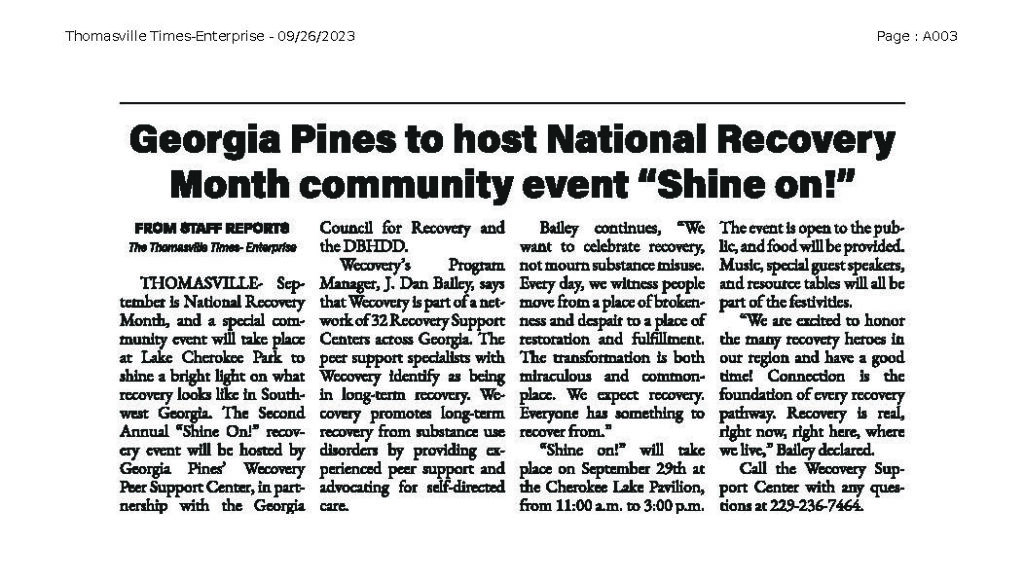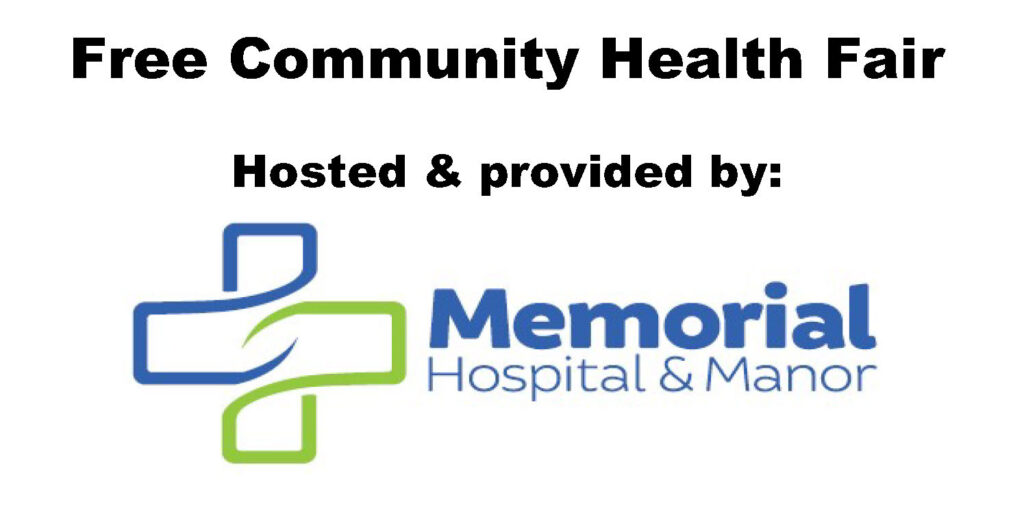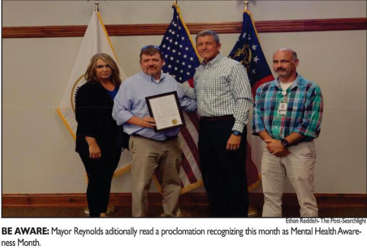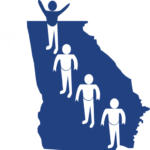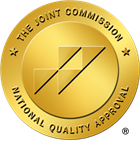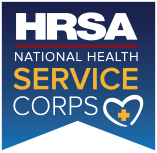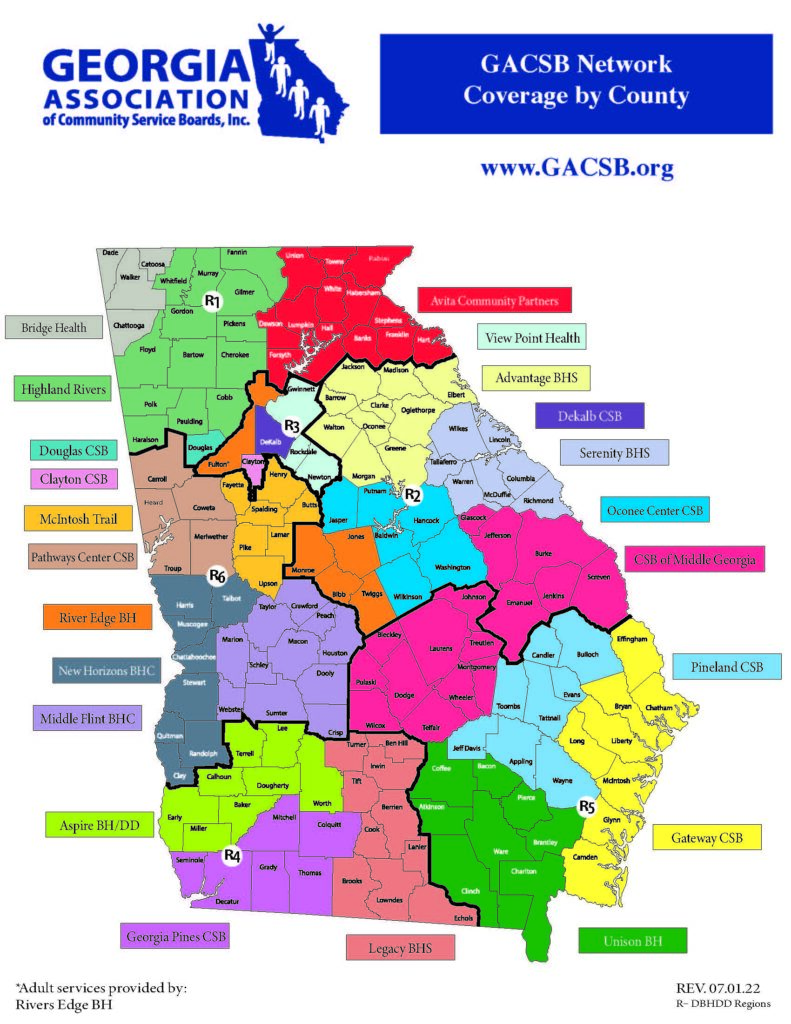
Community Service Boards-a critical part of Georgia’s healthcare system
Community Service Boards (CSBs) are a critical component of Georgia’s healthcare system because they provide services to people who otherwise would not be able to receive treatment for behavioral health needs – mental illness, substance use disorders and intellectual/developmental disabilities. CSBs were codified in Georgia law (O.C.G.A 37-2-6) and created in 1994 specifically to serve people who have limited income, who are uninsured or underinsured, or who have Medicaid. People who receive services from CSBs face complex life challenges which can impact their treatment and recovery; CSBs help them navigate these challenges with compassion and hope.
There are 22 CSBs in Georgia that serve all 159 counties; most CSBs serve multiple counties and are the only local behavioral health provider. No matter which Georgia county an individual may live in, there is a CSB that serves the county and is available to help. Collectively, Georgia CSBs form the state’s behavioral health safety net, ensuring that behavioral health services are available to anyone regardless of ability to pay.
CSBs in Georgia provide a comprehensive continuum of behavioral health services – from intensive crisis stabilization and acute detoxification to less-intensive outpatient counseling and peer support services. CSBs also provide residential substance use treatment, community-based services, supported employment, day programs, supportive housing and much more. In short, CSB services help move individuals with behavioral health disorders through a continuum of services to meet their changing needs, to achieve recovery and live independently in the community. CSB services cost much less than those of private sector providers and are a good value for public funders and payors.
Georgia CSBs are governed by an array of professional and regulatory standards. CSBs employ a variety of licensed, certified, and credentialed staff statewide, including board-certified psychiatrists, licensed counselors, registered nurses, licensed nurse practitioners, certified addiction counselors, certified peers, and direct support professionals. In addition, CSBs must meet contract and reimbursement standards for the Department of Behavioral Health and Developmental Disabilities (DBHDD), the Centers for Medicare and Medicaid Services (CMS), as well as the requirements of federal agencies from which they may receive grant funding (for example, the Substance Abuse and Mental Health Services Administration, SAMHSA).
CSBs in Georgia are accredited by the Commission on Accreditation of Rehabilitation Facilities (CARF) International, which has 2,800 standards covering all aspects of the organization – not only standards for clinical services, but also organizational leadership, financial operations, record keeping and privacy standards, among others. To assure local accountability, each CSB is overseen by a governing board with volunteer representatives from each county it serves, appointed by the respective county Board of Commissioners.
CSBs are vital community partners and local behavioral health authorities. CSBs partner with local organizations of all types to provide services to meet the unique needs of various populations. Some examples of those partnerships are local schools, justice systems, other recovery providers and social service agencies, law enforcement, veteran service organizations, and hospitals. CSBs provide community-based primary behavioral healthcare, helping to prevent more serious illness and potential consequences. By linking with local partner organizations, a robust network of local CSBs help individuals, families, local communities, and the state of Georgia save money and resources by:
Reducing criminal justice system involvement and incarceration for youth and adults with behavioral challenges.
Reducing homelessness, housing insecurity and food insecurity.
Reducing the burden of untreated mental illness and substance use disorders on employers, hospital emergency departments, families, schools, and communities.
Reducing preventable death from suicide, overdose and chronic physical diseases associated with behavioral health disorders.
By ensuring primary behavioral health services are available to anyone – especially those who have no other options for treatment – Community Service Boards benefit everyone.
What people are saying about their CSB
“The services here are wonderful. They do help. They don’t push. They listen. It’s an all-out great place to go. I would recommend it to my closest friends, even my children.”
“While I was here, I enjoyed the staff members and nurses. They helped me out a lot.”
“I have more availability for counseling since going virtual. It cuts down a lot on travel time and allows me to be counseled during my lunch, allowing me not to take so much time off work.”
“This is the first time in treatment I have felt that has been proactive in my daughter’s mental care and well-being. The treatment has also been supportive to me as the staff understand how family dynamics impact her journey.”
“I love everyone here.”
“Staff are very supportive and always aware of my progress and my difficulties. They are a blessing to me.”
“I love this program. It has changed my life.”
“The MAT Program has saved my life and my husband’s life. We are very thankful for the program and without it we would have not been in recovery and lost our kids. The staff have changed our lives.”
“I love this place. It has helped me so much and the staff are very nice and welcoming.”
“My son has learned to cope with his emotional and anger issues. He also learned that its ok to express himself to his mother.”
“Great facility, staff, and program. Would definitely recommend it to others suffering with addiction.”
“In the last 7 months of my life the turnaround has been completely amazing, and Miss Terry has been a big part of that. I’m extremely grateful.”
“This program is very beneficial and patient with my needs of sobriety and my family”.
“This is and the best service I have received, ever. My mother is the one that got me into services. I would recommend it to anyone who needs it.”
For more information, please contact your local CSB, Georgia Pines Community Service Board.
CEO, Robert J. Hurn can be reached at rjhurn@georgiapines.net or 229-225-4373.



